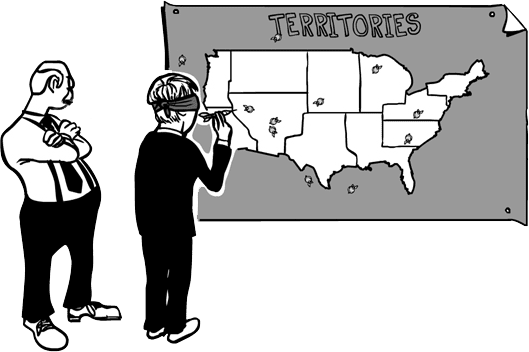Here are some great sales strategy execution ideas to drive revenue to your business. Strategy execution is definitely a trending management topic right now. Many CEOs are concerned with it because it is one of the most challenging issues, especially within the sales profession. However, some companies and managers aren’t sure of what it is, other than implanting a strategic plan and executing against your plan. Execution is implemented and completed with strategies, people and operations. You must have all three to have a great sales team. Here are five sales strategy execution ideas to help you drive revenue, so find the one that fits your needs and start working on it as soon as possible.
Find Growth
Growing your business is one of the only ways to drive healthy revenue to your business. You’ve got to be bigger and better than the competition to ensure that you stay on top. You can do this by constantly being on the look out for new trends in your industry. This is a great way to grow within the existing markets, branching out into a new or different market and drilling into big data.
Serve Your Customers
Your customers are your priority, and you should work with them instead of for them. Using multiple channels to serve your customers will help drive sales. Trying different tactics, such as smartphone paying apps and online buying with in-store pickup are the things your customers want. If you serve your customers better than other companies, you will succeed. Set yourself apart from other companies by going the extra mile when serving your customers, it will create a lasting and positive impression on your client and can even lead to recommendations to generate more clients.
Sales Coaching or Sales Training
Your sales engine is a primary part of the revenue-driving field. If you don’t have the sales management or sales force talent, you’ll lose business. Learning about various strategies and methods can boost the morale of the team and help them perform better. If their weaknesses prevent them from selling, consider working through those weaknesses with a sales coach or with the help of formal sales training.
Focus On People
Whether you are a small or large business, you have to focus on all people, not just your employees and customers. Sometimes, giving back to your community is enough to gain the respect of new customers or renew the respect of current ones. Focusing all your attention and money on the company, customers and community can lead to greater revenues and fewer problems. Learn to motivate your employees in five simple steps.
Change
Change can be difficult and unwanted by many. Employees are always scared of change, but once it’s over, you’ve weeded out the bad seeds and gained a new perspective. However, sometimes the shareholders and managers are the ones scared about some new change. However, implementing those difficult changes can help you beat your completion and drive new revenue opportunities to your business.
Learn more about adapting to change by changing your mindset.
Learning five different sales strategy execution ideas can help drive revenue for your business.






 from the sale. Some companies will pay you for your time and give you a percent of the profits from everything you sell. You are in control of your paycheck, but it never falls below a certain rate due to the hourly pay. Did you know that some sales reps make double digit incomes every month? Some sales positions are commission only, but they offer higher percentage commissions in most cases. Another form of pay is a base price per item sold. For example a company who sells cars may pay you 100 dollars for every compact car, $150 for every sedan, $250 for every truck and $300 for every SUV you sell. This is a very lucrative business and there is a lot of money to be made in sales. There is nothing to lose and everything to gain in selling. You are in control of your finances. The sky is the limit. If you find yourself needing more money, you don’t have to go beg your boss for a raise, just get out there work harder and sell more.
from the sale. Some companies will pay you for your time and give you a percent of the profits from everything you sell. You are in control of your paycheck, but it never falls below a certain rate due to the hourly pay. Did you know that some sales reps make double digit incomes every month? Some sales positions are commission only, but they offer higher percentage commissions in most cases. Another form of pay is a base price per item sold. For example a company who sells cars may pay you 100 dollars for every compact car, $150 for every sedan, $250 for every truck and $300 for every SUV you sell. This is a very lucrative business and there is a lot of money to be made in sales. There is nothing to lose and everything to gain in selling. You are in control of your finances. The sky is the limit. If you find yourself needing more money, you don’t have to go beg your boss for a raise, just get out there work harder and sell more.



